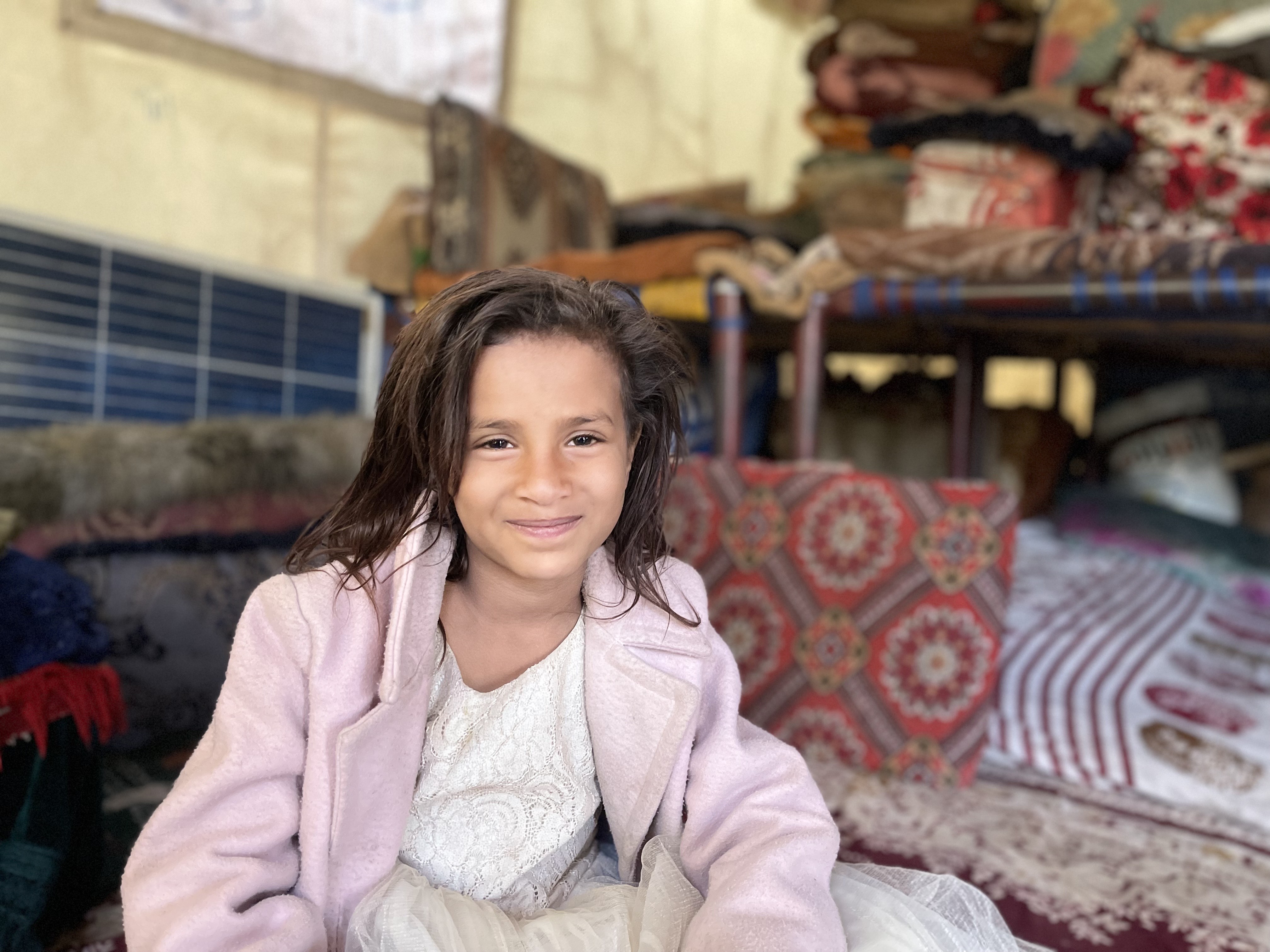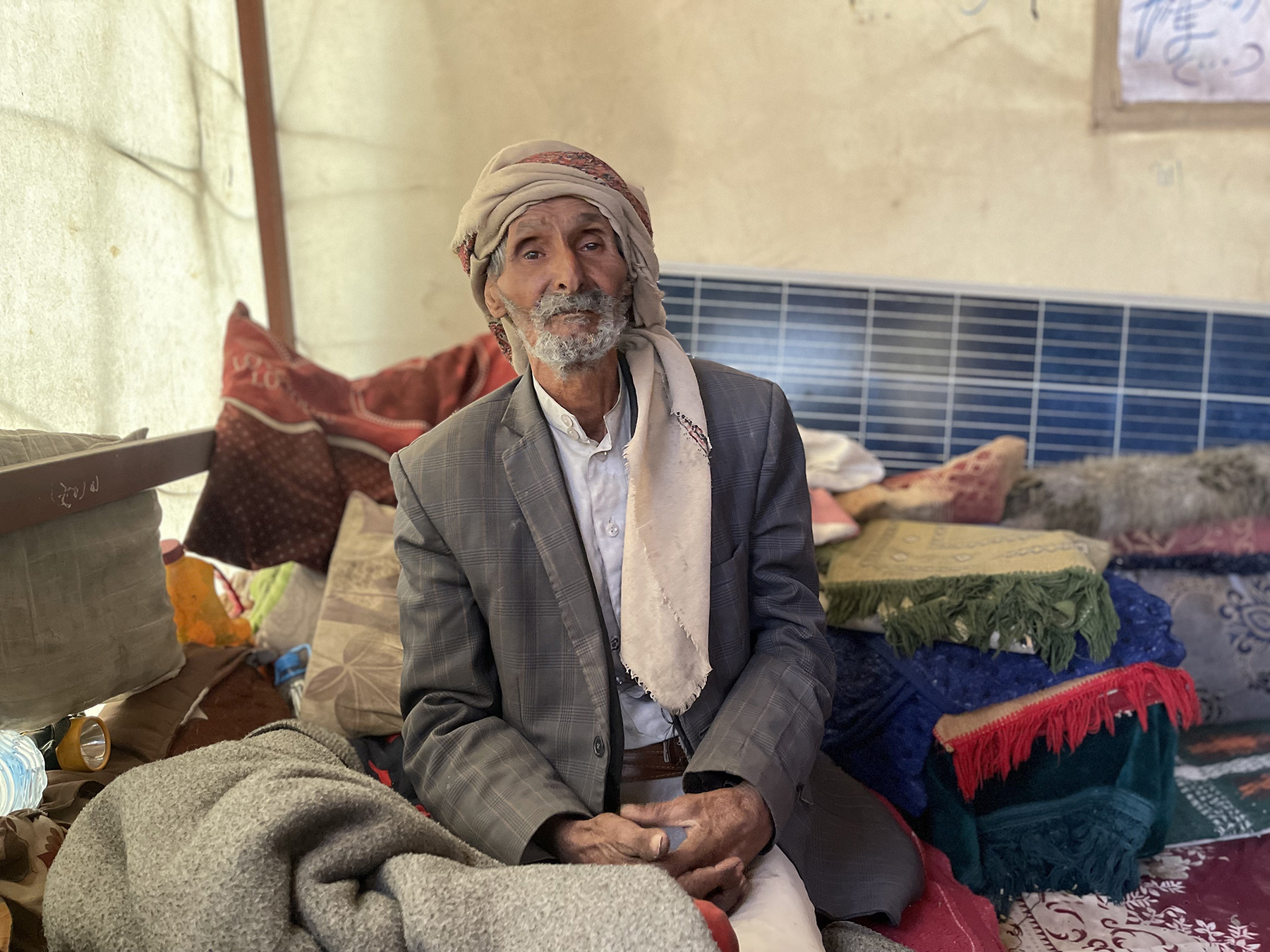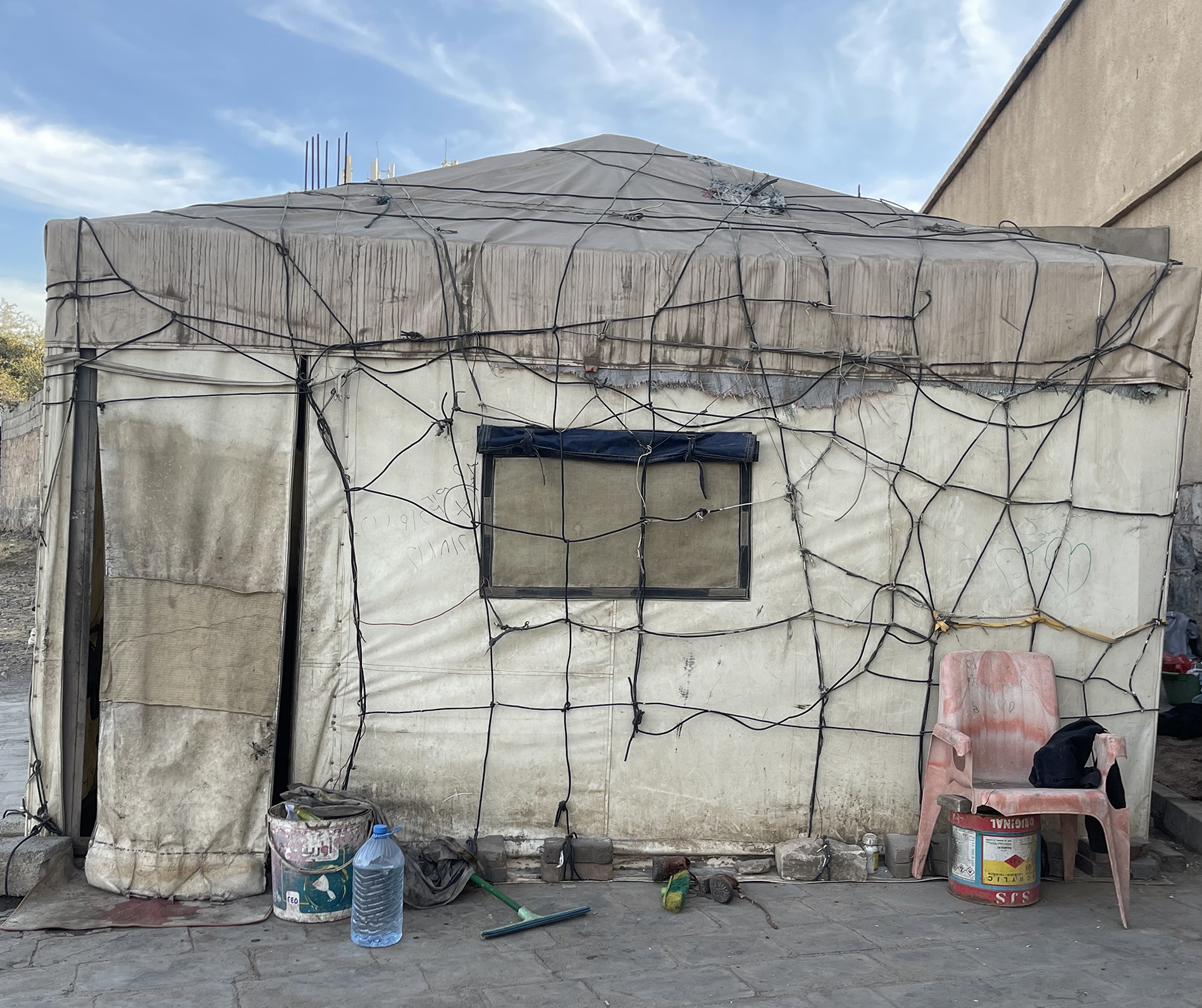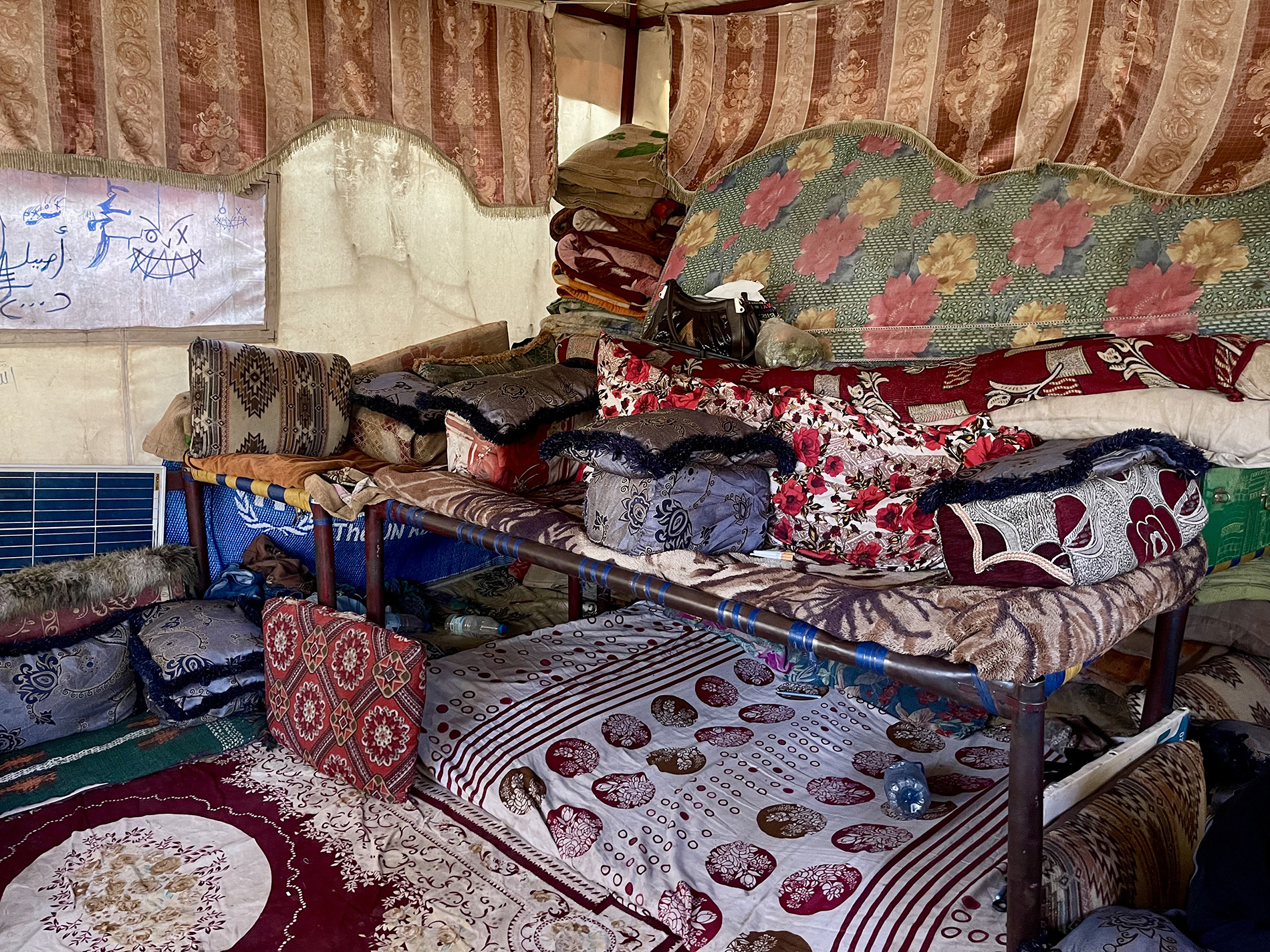Inside a small, worn tent in Sana’a, Yemen’s capital, Umm Aseel and her husband welcomed me with warm smiles. Their modest shelter—barely enough for a family of five—contained little more than a tattered bed, a broken wardrobe, a few cooking utensils, and a non-functional television.
Mohamed Al-Harazi, a frail man in his seventies, sat on a worn mattress as he recounted the story of their displacement from Hodeidah Governorate, fleeing relentless war.
"We left everything behind—our home, our belongings. All we carried were some clothes and memories," he said, his voice heavy with sorrow.

Originally from the Al-Bayda neighborhood near Hodeidah port, the family first sought refuge in Bajil. However, heavy strikes devastated Bajil, killing several relatives and forcing the Al-Harazi family to flee again—this time to Sana’a.
"We’ve been living here for over four years," Al-Harazi said. “At first, we slept in the open, even inside the wreck of an old car. Eventually, a philanthropist gave us this tent.”
Beside their tent, they built a rudimentary stone bathroom and dug a small pit for sanitation, emptying it manually when full.
Daily Struggles
The family's daily life is a relentless struggle—finding food, collecting water, and creating a fragile sense of stability.
"We wake up at seven every morning," Umm Aseel said. "My husband or one of my sons goes out asking for 'kodam' (traditional bread). We usually get around 20 loaves—enough for breakfast and lunch. Sometimes, if we have sugar, we make tea. Otherwise, we eat with water."
Dinner is often a luxury they cannot afford.
"Most nights, we go to bed hungry," she said, her voice cracking. "It breaks my heart when my daughters tell me they’re hungry."
To survive, Umm Aseel collects and sells empty water bottles, earning about 500 Yemeni riyals (less than $1) a day.
"My husband suffers from chronic spinal pain. My eldest son can’t find work, my youngest daughter is in second grade, and my eldest daughter, a high school student, suffers from a heart valve condition," she explained.
Even her husband's pension has become unreliable. They receive only half a salary once a year—about $50.
Aid from humanitarian organizations, once a lifeline, stopped nearly two years ago. Severe funding shortages and restrictions, especially by Houthi authorities controlling populated areas like Sana’a and Hodeidah, have crippled humanitarian efforts.
In May 2024, 188 UN and humanitarian agencies urgently appealed for support to assist 18.2 million people in Yemen, including 14 million women and children.
"Oh, state, care for us!" Al-Harazi lamented. "This is a failed state that only cares about war and death."

Dreams Amid Hardship
Despite everything, the Al-Harazi family refuses to surrender hope.
During my visit, they had little to offer but a glass of water. Yet, their hospitality radiated warmth and dignity.
"We are in God’s care, and we thank Him for all His blessings," said Al-Harazi.
Umm Aseel dreams of seeing her children educated and independent.
"The day I see my children happy will be my true celebration," she said. "But when I see the pain of displacement in their eyes, it feels like carrying Mount Uhud on my back."
Since 2015, Yemen has been ravaged by conflict. A Saudi-led coalition launched military operations against the Houthis, who had ousted the internationally recognized government and seized Sana’a.

Hodeidah and its ports endured devastating airstrikes aimed at Houthi military sites, causing widespread human and material losses.
In recent years, military escalation slowed under international pressure. However, in late 2023, the Houthis opened a new front, launching missiles and drones toward Israel and attacking ships in the Red Sea, prompting airstrikes from the United States and the United Kingdom.
As the war expands beyond Yemen’s borders, families like the Al-Harazis fear being displaced again—pushed further into the unknown.













